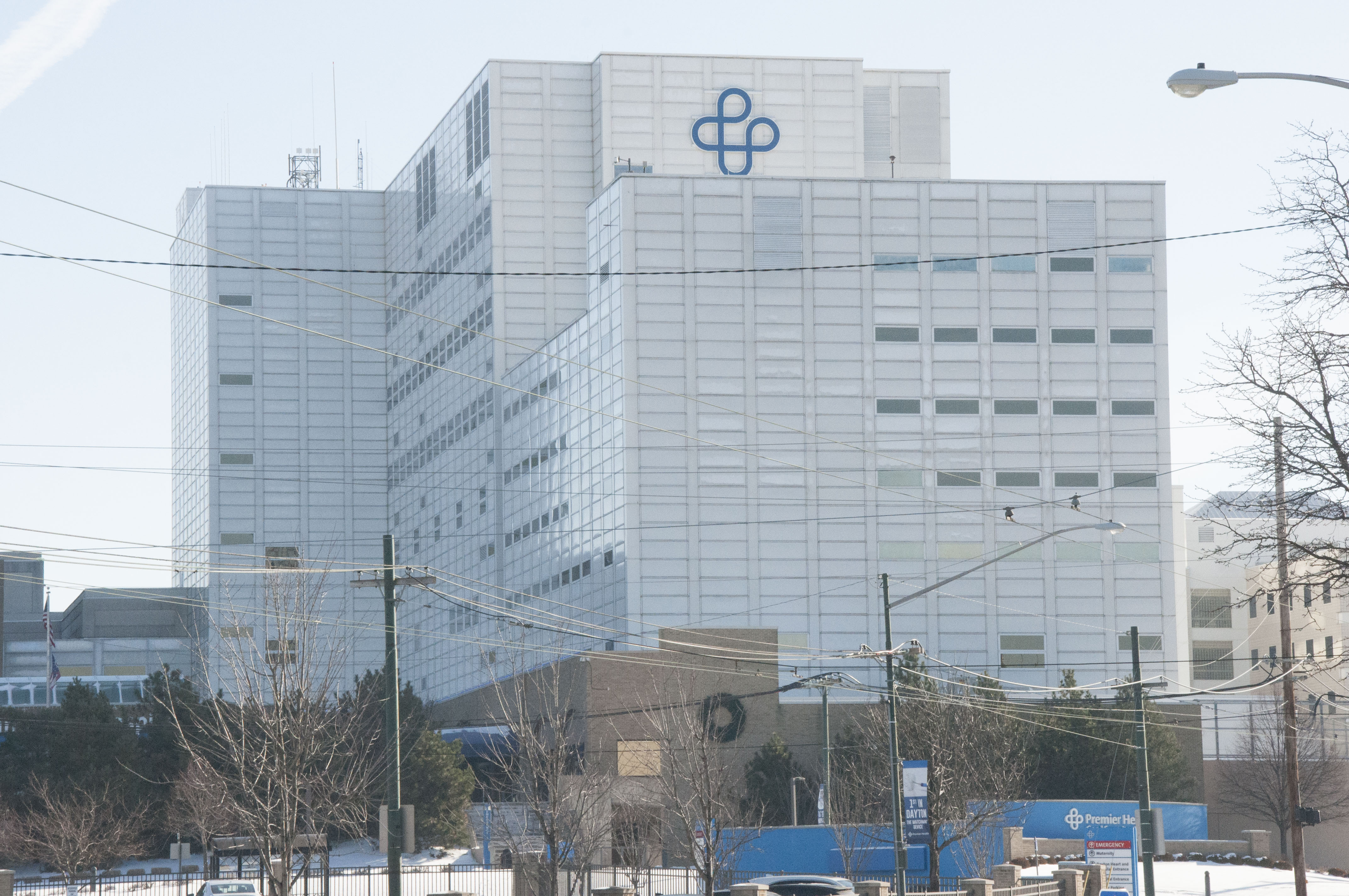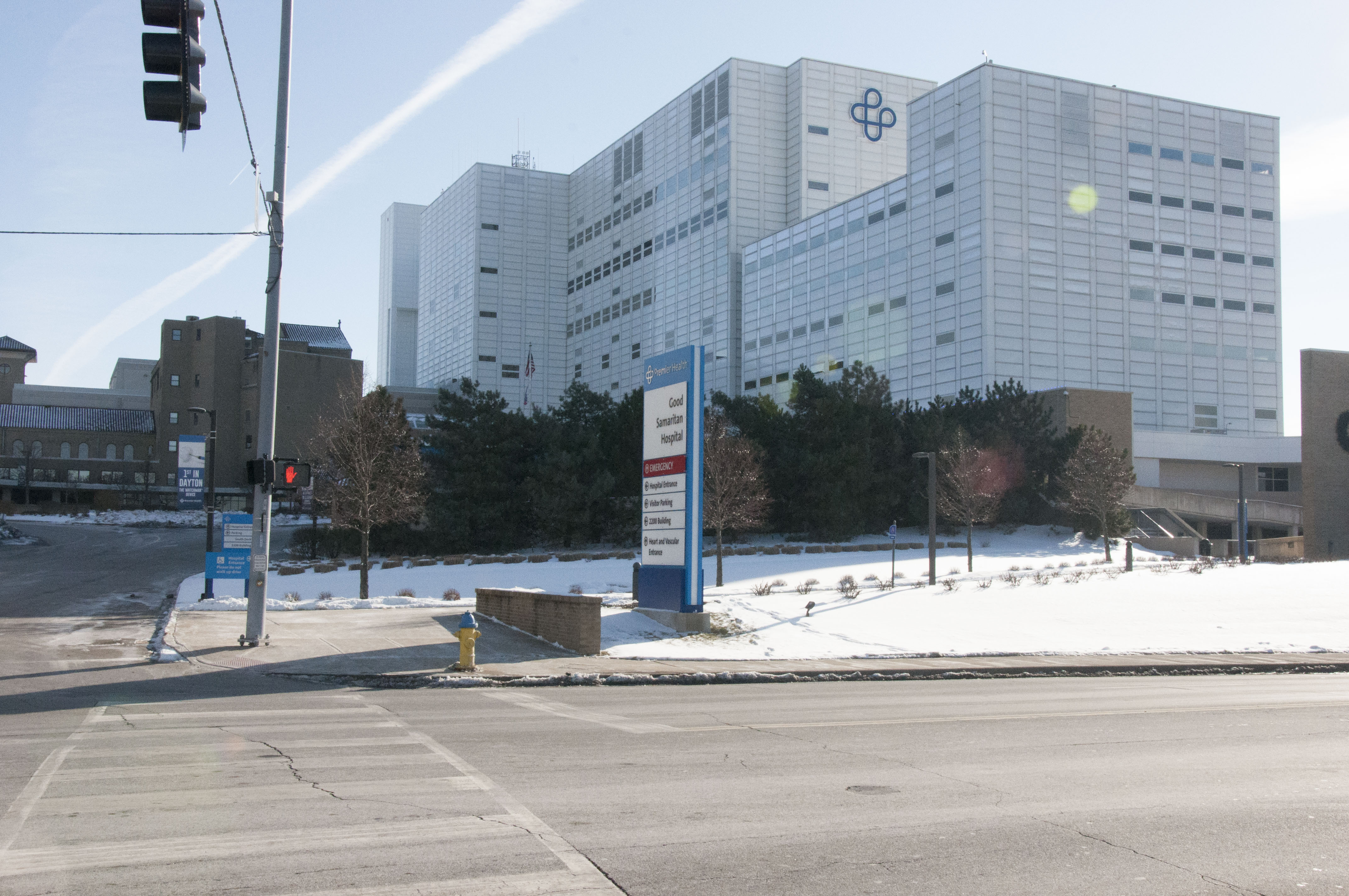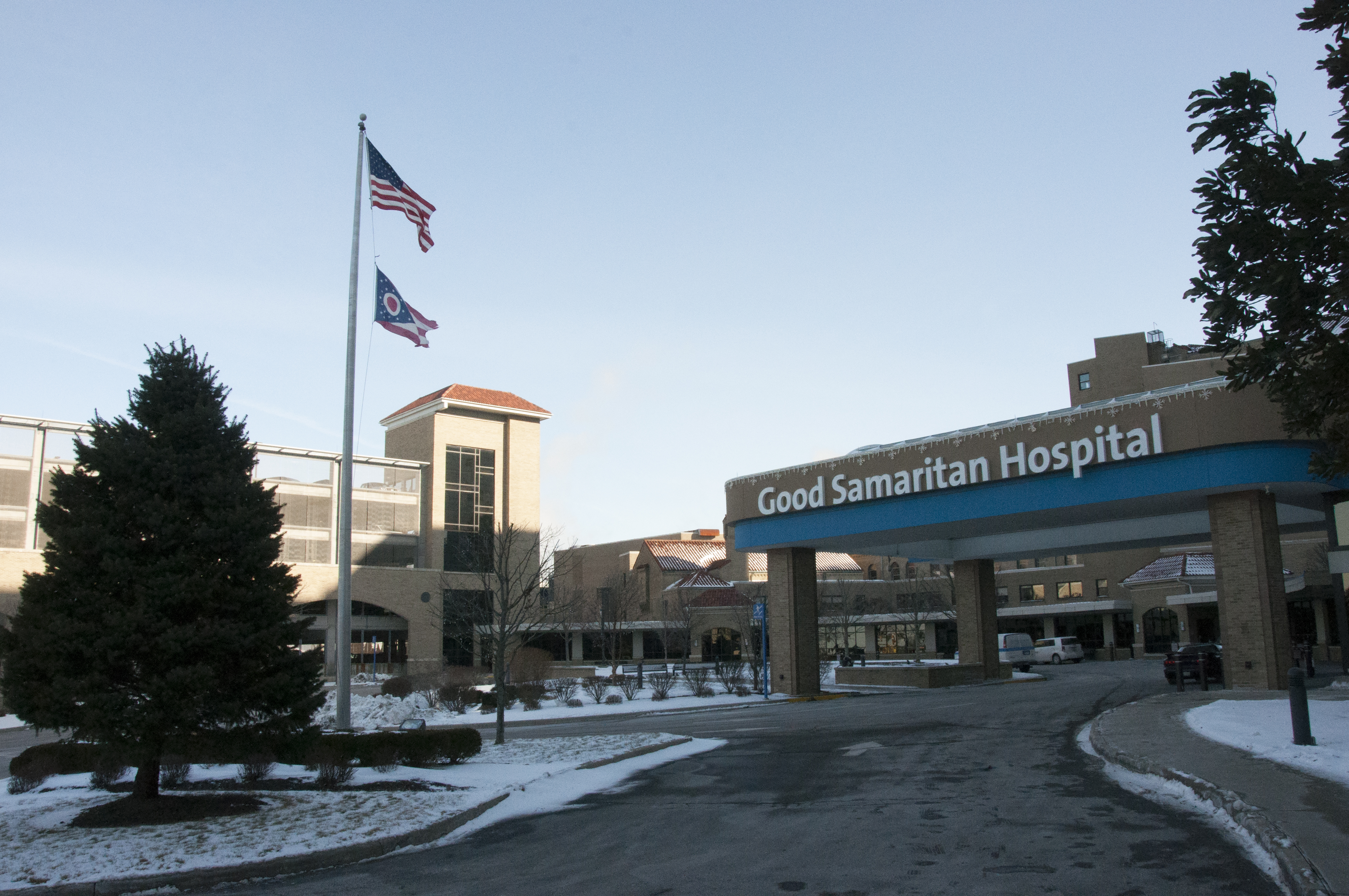Premier Health announced the closing of Good Samaritan Hospital near Salem Avenue on Wednesday Jan. 17, potentially dealing a blow to West Dayton residents. The hospital has been in operation since 1932.
Premier projects the hospital to be closed by the end of 2018. It is part of the Premier Health strategic plan.
According to Premier, the national and local changes in health care partly lead to the decision to close Good Samaritan. Premier could not justify the cost of maintaining and operating the hospital five miles away from their Miami Valley Hospital location.
Premier CEO Mary Boosalis said the cost of keeping the aging facility up to code in the next decade would reach $90 million.
For her, closing the hospital was not an easy choice, but a necessary one.
“On a personal note, I can tell you that this is the most difficult but necessary decision that most of us ever have to make,” Boosalis said in an interview with Dayton Daily News. “The consequences of inaction are far too great because we know the status quo is unsustainable in this environment.”
 Premier plans to shift the services of Good Samaritan to their Miami Valley location. They say this move will be designed to insure that the staff, and the patients access to care has minimal disruption.
Premier plans to shift the services of Good Samaritan to their Miami Valley location. They say this move will be designed to insure that the staff, and the patients access to care has minimal disruption.
The organization’s goal is to offer the 1,600 employees of Good Samaritan positions in other areas of the company.
Premier ensures that the other satellite hospitals within the organization in Huber Heights and Englewood will not be impacted and will remain open.
Current Good Samaritan locations such as Good Samaritan North Health Center, will remain open. These locations will become apart of Miami Valley locations, and undergo some name changes.
The new 2020 strategic plan that closed the hospital, was put in place by Premier to better fulfill the needs of the changing health system and the community long term.
Premier says the new organization of their services will help them “keep pace with national health care policy.” They also hope the plan will help them achieve their mission of building healthier communities.
The Dayton community has reacted to this news in many ways, some shocked, some angry, but all look toward the needs of those in the area.
“This is disappointing and bad news for the city, but we’ve had many times when companies uprooted and left without any conversation or concern about the community they were leaving,” Dayton City Manager Shelley Dickstein said.
Dayton Mayor Nan Whaley also spoke on the situation;
“As a nonprofit and community leader, Premier should not just sell the Good Samaritan site to any buyer; it should listen to community input and ensure the site is redeveloped in a beneficial way.”
 Premier has cited the decline of the length of hospital stays (three days on average compared to six in 2008), impending reform and changes to government insured health care services, like Medicare and Medicaid (which make up 79 percent of patients’ payment) as reasons to shut the location down.
Premier has cited the decline of the length of hospital stays (three days on average compared to six in 2008), impending reform and changes to government insured health care services, like Medicare and Medicaid (which make up 79 percent of patients’ payment) as reasons to shut the location down.
“Hospitals have ‘cannibalized’ themselves by overbuilding in the suburbs, and this loss will be hard on West Dayton, which has endured 40 years of disinvestment,” Whaley said.
West Dayton has especially taken a hit in recent times, following the closure of ALDI, one of the few grocery stores in the area.
Another blow was dealt last month when the Germantown Day-Mont Behavioral Health Care location was closed on Dec. 24.
“I’m like in absolute shock… cause that’s a huge anchor for our community and it literally just seems like the west side is under attack,” Amaha Sellassie, a community activist and professor in the Sinclair sociology department said. “The west side just keeps getting gutted, and I just don’t understand why.”
Others in the community are worried about the possibility of disinvestment in the west side. Premier had previously been funding redevelopment projects in the Fairview neighborhood surrounding Good Samaritan.
“I want to hear Premier’s plan to ensure the essential services that Good Samaritan has been providing to west Dayton is not lost,” Sellassie said.
Closings like this are not unheard of however, as the last major hospital in the city to close its doors was St. Elizabeth Hospital in 2000. The location is now home to various healthcare providers and offices.
Premier plans to engage in community outreach to best decide what plans will be made to repurpose the Good Samaritan site. They will speak to local leaders, and send surveys to those in the community.
“The input of the community is not only wanted, It’s absolutely critical as we work together to transform Good Samaritan Hospital as we go forward,” Boosalis said.
Henry Wolski
Executive Editor
Cerridwyn Kuykendall
Associate Editor


